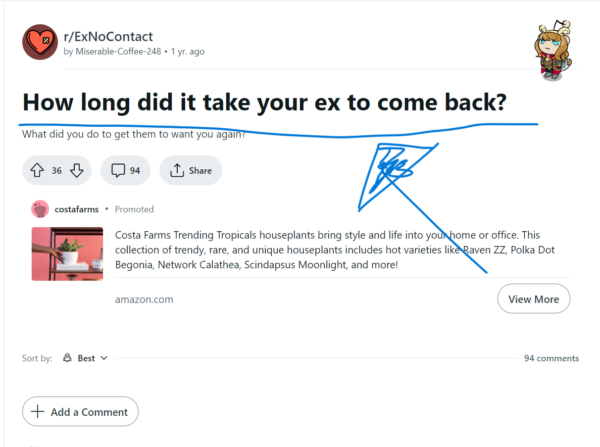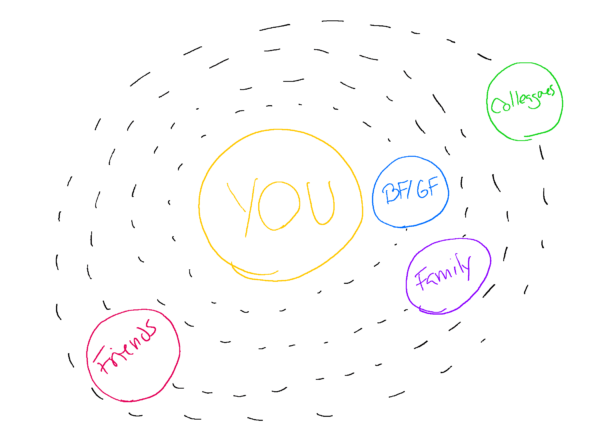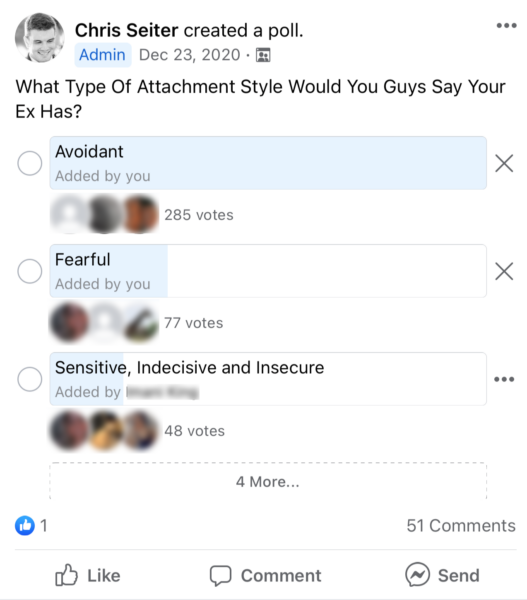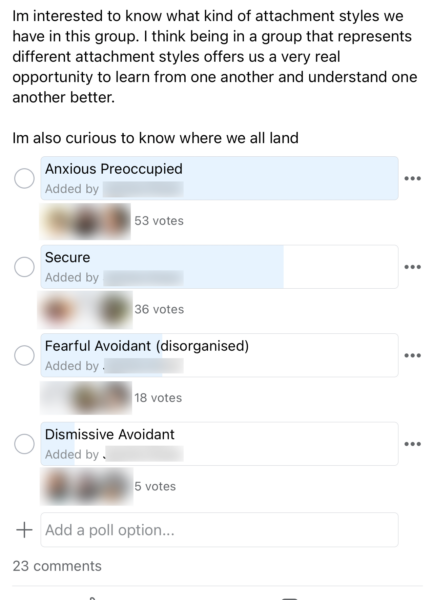This is a complete discussion on short term relationship breakups.
So, if you’ve ever wanted to learn,
- What counts as a short term relationship breakup
- How long it takes to get over a short term relationship breakup
- If no contact can work for them
- Why it’s so hard to get over them
- If short term dumpers come back
Then you are 100% in the right place.
Let’s dive right in!

What Are Your Chances of Getting Your Ex Boyfriend Back?
Take the quizWhat Counts As A Short Term Relationship Breakup?
In my opinion, there are five important criteria that you need to consider when determining whether or not your relationship with your ex is a short-term relationship.
- You have been together for 3 months or less
- You are a one night stand
- You are a rebound
- Mainly physical
- You were looking for more (they weren’t)
Let’s start with the most obvious and arguably easiest one to pinpoint,
You Have Been Together For 3 Months Or Less
Now, there’s no hard and fast rule about how long short-term relationships are supposed to be.
I’ve seen plenty over the course of my time here at Ex Boyfriend Recovery.
Some relationships will be one month long and be considered short-term, while others can be four or five months long, and the clients still classify them as short-term.
So, a lot of it is kind of in the eye of the beholder.
But when looking for any kind of official definition on what legally would be considered a short-term relationship, everyone has different ideas. Sometimes people talk about it being a few weeks long, other times people talk about it being half a year long.
Personally, I think a short-term relationship is a relationship where you’ve been together with that individual for three months or less. So, that’s my hard and fast rule.
What informs this idea?
Well, it actually seemed to be the general consensus that most of the resources I could compile would agree on.
You Were A One Night Stand
I don’t really have to explain this one do I?
I’m just going to move on.
You Are Likely A Rebound
I have found that rebound relationships, on average, last around 5.2 months.
This is notably quite a bit longer than our official definition of short-term relationships, which is three months or less.
But the average duration of a rebound relationship is 5.2 months, which means that there are some rebounds that have lasted longer than five months and some that have lasted way less than five months.
If you are in a rebound relationship, then technically you are more at risk for having your ex will break up with you within that three-month mark.
Your Relationship Was Mostly Physical
In situations like this, I always think of the movie “No Strings Attached” with Natalie Portman and Ashton Kutcher, where the relationship is purely physical and lacks emotional depth.

What Are Your Chances of Getting Your Ex Boyfriend Back?
Take the quizIf you’re in a relationship like that, you are a candidate for being in a short-term relationship.
And this leads me to my next point.
You Are Looking For More (They Aren’t)
If you are in a mainly physical relationship, oftentimes you’re in a situation where you’re looking for more, but your ex was not looking for more.
These are all the criteria/symptoms that can help you identify and pinpoint if you are actually in a short-term relationship.
I would say if you meet three out of the five criteria, then you are most likely considered to be in a short-term relationship.
However, one criterion that I think is important is that you have not been together with your ex for a very long time.
Exactly How Long It Takes To Get Over A Short Term Relationship Breakup?
I’ve written a lot about this in the past and even looked at the average amount of time it takes for an ex to come back.
(More on this in a second.)
What’s really interesting about this topic is that everyone has different opinions on how long it will take.
In fact, a few months ago, I was involved in researching an article where I went to Reddit and found a thread titled “Hey, how long did it take for your ex to come back?”
I went through and looked at every single response in that thread and listed them all.
When I averaged these responses, it came out to be 8.3 months.
Now, what’s interesting is that this is actually quite a bit longer than the average success timeframe of our program, which falls between 5-7 months.
But what I find really interesting is that there’s no definitive scientific, peer-reviewed research that can absolutely determine the average time it takes, because it simply doesn’t exist.
There haven’t been many scientists or psychologists who have conducted research specifically related to how long it takes to get over a short-term breakup.
In the past, I’ve even written about coming up with a formula to answer questions like “How long should it take to get over my ex?”
And it really says something about the state of breakup psychology that you have to refer back to the show Sex and the City to come up with an answer on this,
It takes half the total time you went out with someone to get over them. It’s the break-up rule.
So, by this logic if you were with your ex for 6 months, it would take 3 months for you to get over them.
However, I’ve found that this is not a reliable approach.
So, I created this somewhat silly formula based on my own experience.
- X = How long you were together in months
- Y = The average success story time frame (6 months)
- Z = The standard post-breakup processing period (3 months)
X/Y+Z = Timeframe
Let’s say X represents how long you were together in your relationship in months, Y represents the average success story time frame, and Z represents the standard post-breakup processing period, which is 3 months.
Then, you basically take X, divide it by Y, and add 3 to get a more realistic time frame of how long it will take to cope with your breakup.
Again, this is not peer-reviewed and not something that I would completely rely on, but it gives you an idea that it often takes a little bit longer to get over an ex than you initially think.

What Are Your Chances of Getting Your Ex Boyfriend Back?
Take the quizDoes No Contact Work In Sort Term Relationship Breakups?
For those of you who are in a situation where you’re trying to get over your ex or wanting to get them back, the no contact rule is likely something you’ll come across.
But does it work for short-term relationships?
Well, yes, it does. However, it’s important to remember that the focus of the no contact rule shouldn’t be solely on your ex; it should be on yourself.
I know it may sound cliché, but it truly does work.
One consistent factor that separates successful people from unsuccessful ones in our community is their ability to prioritize themselves over their ex.
This makes sense when you consider that many of our clients tend to have codependent tendencies, meaning their whole world revolves around their ex or their relationship.
By implementing the no contact rule and focusing on themselves, they not only help themselves personally but also make their ex, who likely has an avoidant attachment style, more inclined to come back.
When it comes to short-term relationships, the question I usually receive about the no contact rule isn’t so much about whether to do it but rather how long it should be.
The idea is that because it was a short-term relationship, the duration of the no contact rule should be shortened, right?
Traditionally, when it comes to the no contact rule, my recommendation to clients is to approach the length of the rule based on attachment styles.
For example,
- If your ex has an anxious attachment style, a 21-day no contact rule is generally recommended.
- If your ex has an avoidant attachment style, a 45-day no contact rule is more suitable.
- If your ex has a fearful-avoidant attachment style, a 21-day no contact rule is likely.
- And if your ex has a secure attachment style, a 30-day no contact rule is typically advised.
Now, here’s the important thing: as I mentioned earlier, most of the exes our clients are trying to get back or get over tend to have avoidant attachment styles.
However, does a short-term relationship require less time for no contact, even if your ex has an avoidant attachment style?
In the past, I used to say yes, it’s okay to shorten the no contact period. But after doing this for 10 years, I’ve found that there’s actually no significant difference whether you were together for a week or five years.
It’s best to stick to the guidelines rather than making impromptu changes.
Why Is It So Hard To Get Over A Short Term Relationship Breakup?
I believe this can be attributed to the concept of limerence,
Which describes a state of mind where someone is obsessively infatuated with another person, constantly thinking about them to the point where it impacts their daily life.
I actually wrote an article about this yesterday, covering various aspects of limerence in relation to breakups.
In the context of this conversation, it is relevant because, typically, in a short-term relationship, there is often a sense of unfinished business, leaving a lack of closure that is desired.
Furthermore, considering that many of our clients have anxiety and anxious attachment styles, they are more prone to experiencing limerence.

What Are Your Chances of Getting Your Ex Boyfriend Back?
Take the quizI often discuss the neurochemical changes in the brain after a breakup, where cortisol levels, also known as the stress hormone, can spike significantly.
Normally, it takes around three to four hours for cortisol to return to normal levels.
However, if it remains elevated beyond that timeframe, it can take as long as six months for it to regulate.
What makes short-term relationships, or relationships in today’s day and age, particularly difficult to get over is the constant reminders of your ex. This is especially true if you’re still friends with your ex on social media platforms like Facebook, where seeing their posts becomes almost addictive and keeps your cortisol levels high.
This perpetuates a state of stress and anxiety.
Due to the heightened anxiety, you are much more likely to experience limerence, becoming obsessively infatuated with your ex and constantly thinking about them.
All of these factors are interconnected, as the sense of unfinished business in a short-term relationship can lead to unhealthy coping mechanisms and contribute to the difficulty of moving on.
Do Short Term Dumpers Even Come Back?
Well, yes, they can.
However, in my opinion, their ability and likelihood of coming back revolve around four key factors.
- Peak/End Rule
- Regret/Nostalgic Reverie
- Lack Of Other Appealing Options
- Your Personal Growth
The Peak/End Rule
This may seem like an odd place to mention it, but the peak end rule is actually one of my favorite concepts because it explains how human beings remember experiences based on two distinct points: the peak moments and the end moments.
In short-term relationships, things often burn bright and fast, so there may not be many negative experiences for your ex to hold onto.
Instead, they might be more likely to attach themselves to the positive peak moments of the relationship and focus on those. This can be seen as an advantage of having a short-term relationship, although it’s not guaranteed for everyone.
If your ex broke up with you due to constant arguments and fighting, this may not apply.
Regret/Nostalgic Reverie
One thing we know about avoidant attachment styles, which again, is the most likely attachment category your ex is going to fall under,
Is that they don’t give themselves permission to miss you until they feel that you have moved on from them.
I actually talked about this concept a lot in this video,
And this video,
And this video,
You get the picture?
It is during this nostalgia and nostalgic reverie that they think of specific moments, whether physical or intensely emotional, that bring back good feelings. This can lead to feelings of regret and potentially make them want to try again.
Lack Of Appealing Options
Another factor that is often overlooked is the lack of other appealing options. In almost every breakup circumstance, the grass can appear greener on the other side.
After all, what are breakups if not one person thinking they can do better than the other?
However, if at some point your ex realizes that the dating pool isn’t as appealing as they thought and there aren’t many attractive options, they might consider returning to you, old faithful. While this may be less likely in a short-term relationship, I have seen it happen.
Your Own Personal Growth
However, the factor that makes the biggest difference is your own personal growth.
As mentioned earlier regarding the no contact rule, the most important thing for you to do after a breakup is to work on shedding any codependent tendencies you may have.
As I have said, most of the exes our clients are trying to get back or move on from tend to have avoidant attachment styles, which means they value independence and often enjoy being alone.
If you have codependent tendencies, such as crowding them, being overly anxious, constantly seeking reassurance, or displaying an anxious attachment style, your behavior may irritate their desire for independence.
So, if they notice a change in you when they talk to you again—more space, less apparent desire to get back together—it piques their interest and creates a potential environment where they might consider a return.
But here’s the beautiful part about personal growth: Usually, when my clients go through the entire arc of personal growth that I guide them through, they often find that they no longer want their exes back. And ironically, that often makes the exes want to come back even more.







Chanel
February 19, 2024 at 1:41 pm
Dated a guy for 2 months. Strong connection and chemistry and consistency. 3 days before says has strong feelings. Then after a slight disagreement reveals he is so overwhelmed and stressed with external life issues that he needs to break things off. Didn’t want to relationship to end in a harsh/hurtful way. Went into no contact and he is now in dating sites after 2 weeks.
Angela
June 16, 2023 at 8:32 am
What if we dated 2 months, not official, we’re both 29 and said we’re looking for LTR at the beginning, spent a ton of time together, developed strong connection, he was consistent, then he suddenly asks for a break while he goes on holiday for a month – a holiday I didn’t know about – saying he’s not ready to invite me, not ready yet/sure of me yet, but he wants to catch up when he’s back and reassures me he really likes me. I agree, we exchange a couple messages, then he stops messaging 2 days into his travel. After talking all the time for past 2 months. That’s a breakup, right? Or should I expect to hear from him? Very confused what this is. What should I do?
Coach Shaunna
November 12, 2023 at 7:01 am
Hi Angela, that is not a break up that is a “wait for me to go enjoy my break and do what I wish while I am away with no repercussions” and then when I am home lets pick up where we left off. I would be mindful of being intimate with this guy if he is keeping things non official with you he may be seeing other people in the mean time regardless of how often you speak.